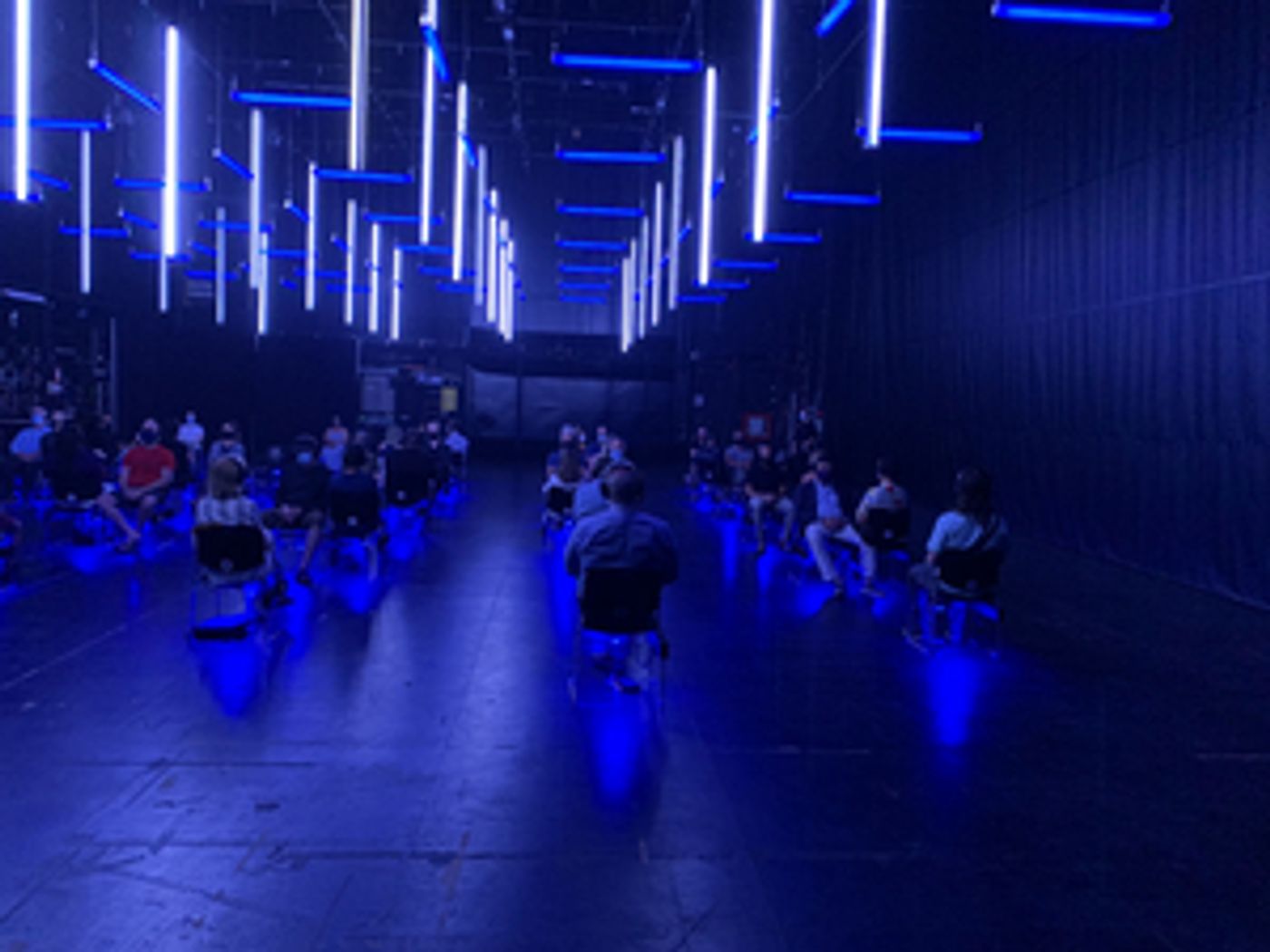Review: BLINDNESS at Princess Of Wales Theatre
Marks Mirvish's return with a bleak dystopian tale

When Portuguese novelist José Saramago wrote the novel Blindness, in 1995, about a devastating epidemic of sightlessness, he could hardly have guessed that, some 25 years later, a real pandemic would wreak havoc on the world. Saramago's story must have been low-hanging fruit for UK playwright Simon Stephens, who has adapted Blindness into a piece of theatre that combines elements of radio, light installation, and immersive theatre.
BLINDNESS, which opened this week at the Princess of Wales Theatre, is not a play, per say, but more like a finely produced audio drama accentuated and energised by immersive lighting features. It works like this: after waiting in your designated waiting spot (marked on the floor of the theatre lobby), a no-nonsense usher will lead to your spot in the socially-distanced seating area. You take your seat and listen to the house instructions, of which there are many, some of which involve infrared cameras. Then you pop on your headphones and listen as the story begins.
Juliet Stevenson narrates and performs the entirety of BLINDNESS. She is a riveting storyteller with an expressive voice that ranges from motherly to rabid. As she speaks - sometimes whispers - into your ear, a light installation flickers, flashes, and hovers above and around you. Although Mirvish has chosen to emphasise the lighting features in their marketing materials by calling the show an 'installation', I would argue that the lights only serve to accent, rather than direct, the audio text. Indeed, the most powerful moments of the story are told in complete darkness.
Sometime, in some city, somewhere, people start going suddenly and totally blind. First one, then a handful, then hundreds. The government, attempting to isolate the problem, sends the blind to a disused mental hospital where they can be contained. This is where most of the story's action takes place. Among the newly blind is one sighted person who takes charge of the facility, orienting new arrivals and maintaining order as best she can, until her authority is threatened. In a jarringly short amount of time, BLINDNESS transitions from a social drama into a dystopian fiction, and a fairly generic one at that. There are guns, sexual violence, and gangs; people scavenging for food amid inescapable filth.
I couldn't help but compare BLINDNESS to another Mirvish show which ran just down the road from the Princess of Wales: Come from Away, like BLINDNESS, is a story about ordinary people confined in an unfamiliar place as a result of an unprecedented catastrophe. In Come from Away, people band together to comfort each other, console each other, and serve each other with everything they have to offer and more. In BLINDNESS, people resort immediately to cruelty and selfishness. Not only have they lost their decency, Stephens' script has deprived them of everything else that makes us human: culture, religion, art, and love have been stripped away from the story, leaving nothing but animalistic urges.
Perhaps one of the reasons Saramago's novel appealed to Stephens was how it resonated with the British sense of casual dystopia. You don't need to spend much time in London, especially not in the theatre world, before you hear about how this government policy or that corporate action has doomed the environment, the economy, and the arts. When I lived in England, I often got the feeling that British progressives bore a secret wish to see the world end, just so they could roll their eyes and tweet each other "I told you so."
But that's not how I feel, and that's not, I gather, how most Canadians feel. Even outside of Gander, Newfoundland, there are helpers, organisers, storytellers, caretakers. Even at the depths of this pandemic, for every anti-vaxxer in Canada there are hundreds of dedicated health-care workers who save thousands of lives each day.
I don't believe that a pandemic of blindness would bring about the end of the world - not least because there are actual blind people (curiously absent from BLINDNESS) who could lead us back to order - but despite, or maybe because of everything I've seen these past 17 months, I reject the pessimism at the heart of BLINDNESS.
BLINDNESS runs through 29 August at the Princess of Wales Theatre, 300 King Street West, Toronto.
For more information or to buy tickets, click here.
Photo credit: Mirvish Productions
Reader Reviews
Videos

